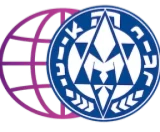By: Samantha Pesel
During Masa LePolin, we embarked on an emotionally intense and deeply meaningful experience. With the goal of learning, remembering our roots and enriching our identity, we immersed ourselves in history by walking primarily through the grounds of Auschwitz, Majdanek and the Lupojoba Forest. In the midst of this journey, we faced several dilemmas that triggered many deep, poignant reflections, feelings of belonging, pride and honor. Each step we took in these emblematic places confronted us with the immensity of the past and the transcendence of our legacy as a Jewish people. We were confronted with a series of dilemmas that triggered deep and poignant reflections.
Walking in Auschwitz, the one who was with me realized that I entered into a dilemma, which kept going round and round in my head, this very one being about the windows in constructions at the camp.
“Sam, it’s normal for there to be windows in barracks.”
“Sam, why is that causing you so much conflict?”
“Sam, there are so many things to see but you notice the windows, why?”
In this environment of Auschwitz as well as Majdanek, the apparently ordinary windows, for me, became mute witnesses to the contrasts of life. Beyond their simple openings, they revealed to me a profound dilemma that raised questions about freedom and the reality that hides behind those glass. Focusing on the windows became a symbolism of the paradox between what can be seen and what is enclosed, creating an inner conflict that manifests itself in the search for meaning in the midst of desolation.
In an architectural or literal context, a window is an opening in a wall that lets in light and ventilation and provides a view to the outside. However, at that moment, for me, that definition took a 360-degree turn. As we went deeper into the camps, for me this simple opening in the wall took on the representation of duality, limitation and separation between freedom and confinement. Inside the Nazi concentration camps, freedom was an illusion. Existence in these camps was a daily struggle for survival, marked by the total absence of autonomy and constant oppression, creating an environment where freedom was an unattainable dream.

For our Jewish brothers and sisters, freedom was seen through a window that appeared impossible to be open. They looked out from claustrophobic barracks, but physical barriers and cruel reality prevented them from crossing that wall to true freedom. The windows became mute witnesses, reminding them of the irony of seeing a free world from a hopeless prison. Freedom, instead of being a possibility, became a distant specter, visible but unattainable, cultivating in them a sense of helplessness and hopelessness amidst the brutality of the Nazi concentration camps. Through those windows, the Jewish prisoners held on to a vision of life beyond their confinement. Every glimmer of light that filtered through the bars became a reminder of lost freedom. While for us a window is simply a frame that separates the inside from the outside, for them it was a threshold to the normality that was taken from them.
Now, we become guardians of history and architects of a future where tolerance and respect are fundamental pillars. We become responsible for being those glimmers of light that enter through every window to illuminate the darkness of hatred. We become that ray of light that solemnly reaffirms our commitment to be witnesses of history and builders of a brighter tomorrow. We become a beacon of hope that will illuminate a world that is still in the process of healing. We have become an ever-stronger people, so strong that we are able to shine through every window of every house, demonstrating the resilience and perseverance of the Jewish people. Together, we now witness the resilience and perseverance of the Jewish spirit in the face of the darkest adversity.
In every step we have taken together, we have honored the legacy of those who were killed, separated from their families, and renewed our commitment to never forget and to fight tirelessly for a more just and compassionate world.
May the flame of tolerance and respect we have lit here continue to burn in our hearts and spread to every corner of the world. May our actions and words serve as lighthouses of hope for those who still fight against injustice and oppression.
Let us go forward with courage and determination, always remembering that, together, we are stronger and that we can illuminate even the thickest shadows with our interior light.
May our commitment endure and may the light we have shared here continue to shine in every window that illuminates our path to a better future.
And now, stronger than ever, we are proud to shout, Am Israel Jai.
Chazak Ve’Ematz











